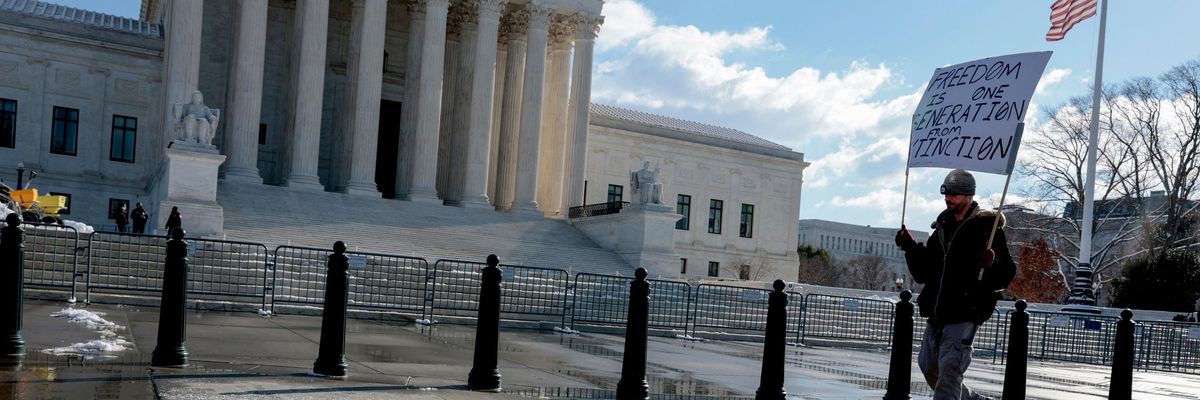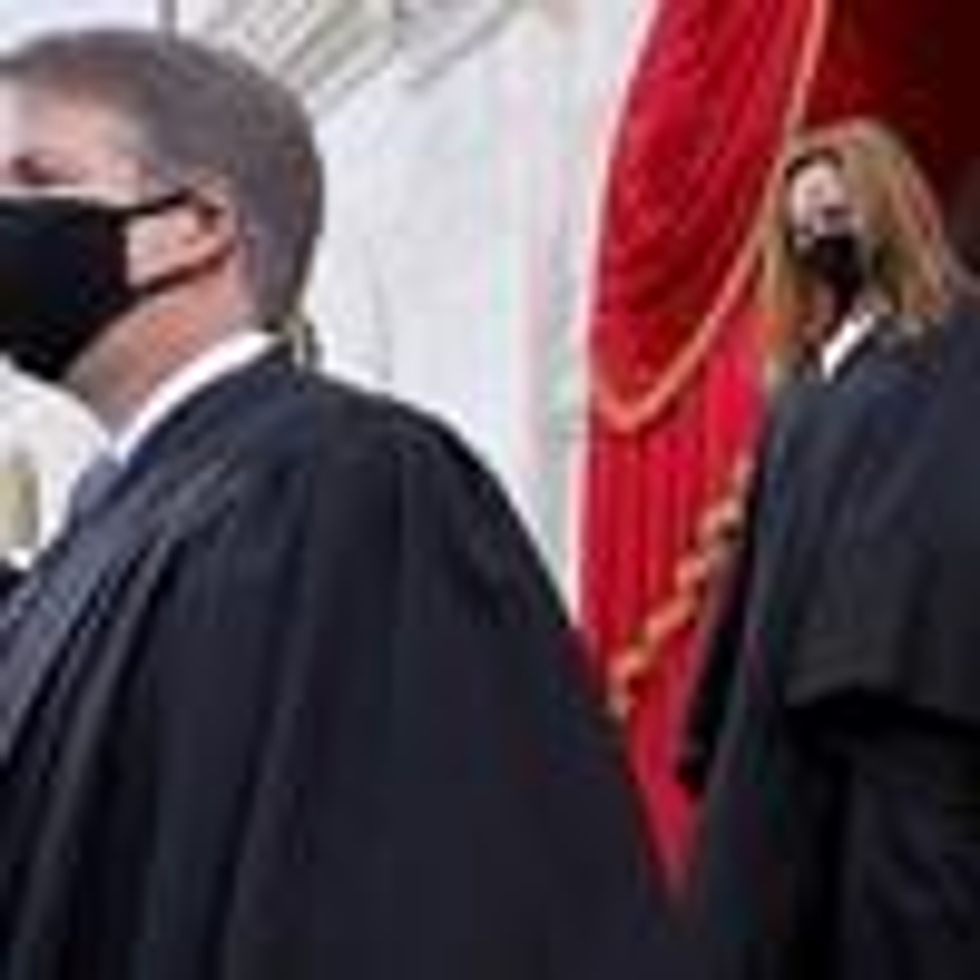As the right-wing majority of the U.S. Supreme Court appeared ready Friday to strike down the Biden administration's Covid-19 safety guidelines for workplaces, the nine justices were protected in their own workplace from exposure to the disease.
According toReuters, two of the attorneys arguing against the vaccination, testing, and mask-wearing rules spoke to the court remotely because they had tested positive for Covid-19 prior to the proceedings.
Ohio Solicitor General Benjamin Flowers' office told the outlet that Flowers, who has been vaccinated and received a booster shot, tested positive shortly after Christmas. He tested positive again Thursday using a PCR test required by the Supreme Court for all attorneys, and the result required him to present his arguments by phone.
Louisiana Solicitor General Liz Murrill's office also told Reuters that she was arguing remotely "in accordance with Covid protocols."
A number of court observers pointed out the irony, considering, as journalist Cristian Farias said, that Flowers' and Murrill's absences showed the effectiveness of strict workplace safety protocols during the pandemic.
"The Supreme Court's workplace rules for Covid effectively kept an infected lawyer arguing against workplace vaccine rules off its premises," said Marias. "The system works."
Flowers and Murrill appeared before the court to argue against an Occupational Safety and Health Administration (OSHA) rule requiring vaccination or testing for all employees at workplaces with 100 or more workers; an executive order requiring workers at federal contracting companies to be fully vaccinated; and a rule requiring inoculation of some healthcare workers.
As epidemiologist David Michaels wrote at the Washington Post Friday, the Supreme Court's Covid-19 rules--ostensibly embraced by the nine justices--are more stringent than those the Biden administration has put forward.
Related Content
Right-Wing Justices Appear Poised to Kill Biden Vaccine Rules Despite Raging Omicron
Kenny Stancil
At the Supreme Court, all attorneys presenting cases must take a PCR test at a court-approved facility before entering the building. Even attorneys who test negative are required to wear an N95 or KN95 mask except when they are arguing their case, eating, or drinking.
"Now, meeting in a safe, controlled environment, the justices may well block OSHA's requirements that employers protect workers from exposure to a deadly virus," wrote Michaels. "This irony illustrates a fundamental inequity that is so normalized it is essentially invisible: Powerful people can choose to work safely, while vulnerable workers must continue to risk their lives to make a living."

